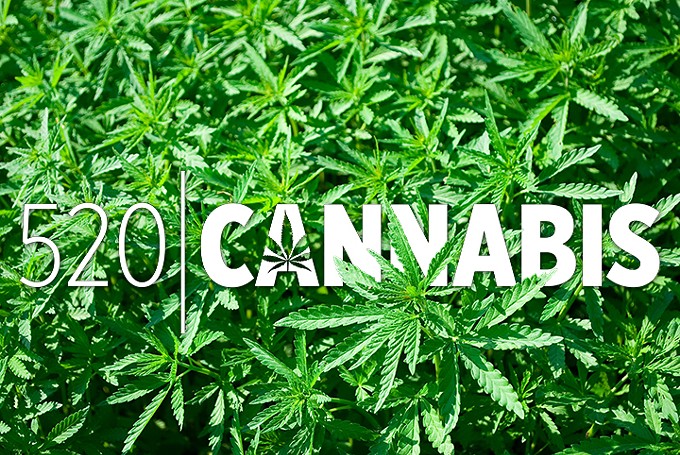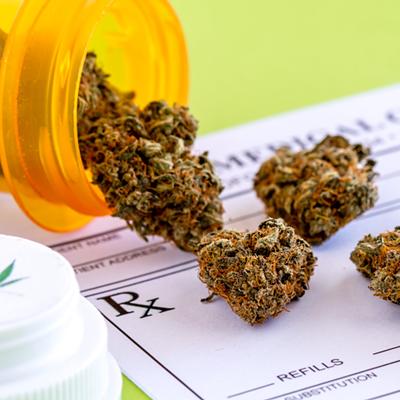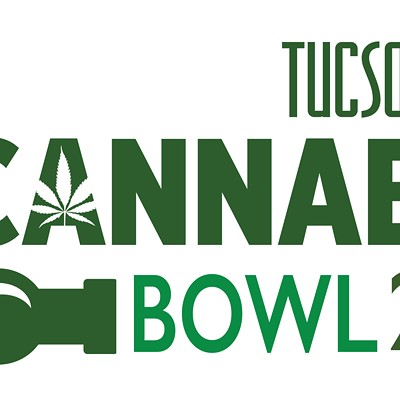Downtown Dispensary owner Moe Asnani knows firsthand how the banking industry treats your local medical marijuana dispensary differently from other businesses, but says the real culprit hindering the cannabis industry is a tax code that puts the business at a disadvantage.
After 15 years with Chase Bank, Asnani was summarily dropped from that financial institution when he went into the business in 2014.
It did not have anything to do with Asnani personally, but was largely the result of conflicting regulations between state and federal government, where on the federal side cannabis is a Schedule I narcotic on par with heroin.
"As a federally regulated institution, we don't provide banking services to businesses participating in federally prohibited activities," said Maura Cordova, a spokesperson for JPMorgan Chase, in response to inquiries about Asnani's abrupt expulsion from Chase.
Asnani holds out hope that in the very near future, the stigma enveloping the industry will be gone once the federal government comes to its senses.
"Hopefully, we'll look back at this situation with nostalgia one day and think, 'Were we really that stupid?'" he said.
But according to Asnani, the real culprit holding back a booming industry is a single line in the U.S. tax code known as 280E, a Reagan-era response to the actions of a Florida cocaine dealer who tried to use business expenses as tax deductions in the early 1980s.
Enacted at the outset of the "War on Drugs," 280E does not allow "drug dealers" to deduct expenses, but the end result for the 21st century cannabis industry increases the tax burden—some business owners pay 70 percent or more in effective tax rate—as well as the expense of hiring accountants and lawyers to find loopholes or fight the system.
"We're fighting this to the death, paying for the best attorneys and accountants," Asnani said. "If [280E] was fully implemented, U.S. cannabis businesses would be decimated and not be viable entities."
The ramifications of 280E are extensive.
Legitimate businesses are being treated like illegal drug traffickers despite the state voter-mandated status of the drug. The industry is one of the most heavily regulated in the state despite its legal status. Dispensaries were not even allowed to pursue Paycheck Protection Program funds when the COVID outbreak took hold.
Additionally, cannabis is being taxed multiple times, including a 6.6 percent sales tax, where pharmaceuticals are not, with the exception of Illinois and Louisiana.
So the MMJ community is basically subsidizing the pharmaceutical industry, in Asnani's view.
"With the amount of money I've spent fighting 280E I could have hired 50 people for a year, not to mention other expenses like TEP, contractors and, of course, the Department of Revenue," Asnani said. "The cannabis industry can't show its full potential because of the bottleneck, and there's never been a better time to make an economic argument [in favor of sensible cannabis laws]. It's pragmatic and we can't wait."
Regardless of pragmatism, we still might have to wait, as enforcement and scrutiny of the MMJ business will likely increase in the wake of a March 30 Treasury Department report titled "The Growth of the Marijuana Industry Warrants Increased Tax Compliance Efforts and Additional Guidance."
Whether Arizona voters opt in favor of recreational cannabis in November and pass the Smart and Safe Initiative, there will continue to be an unfair marketplace for those in the cannabis industry until federal law is more reflective of the realities in a majority of states.
Aari Ruben, owner of Bloom Dispensary in Tucson, points out that there is broad, bipartisan support nationwide for legalized weed, and even if there are changes on a federal level, that would not stop a state like Kansas from enacting its own ban on the plant and its derivatives.
"The percentage of Americans, regardless of political affiliation, who agree that cannabis should be legal is around 68 percent, depending on which poll you look at, so there is large, widespread support," he said. "The idea that we're going to keep it out of peoples' hands is unrealistic, at best.... The genie is out of the bottle and you can't put it back in."














